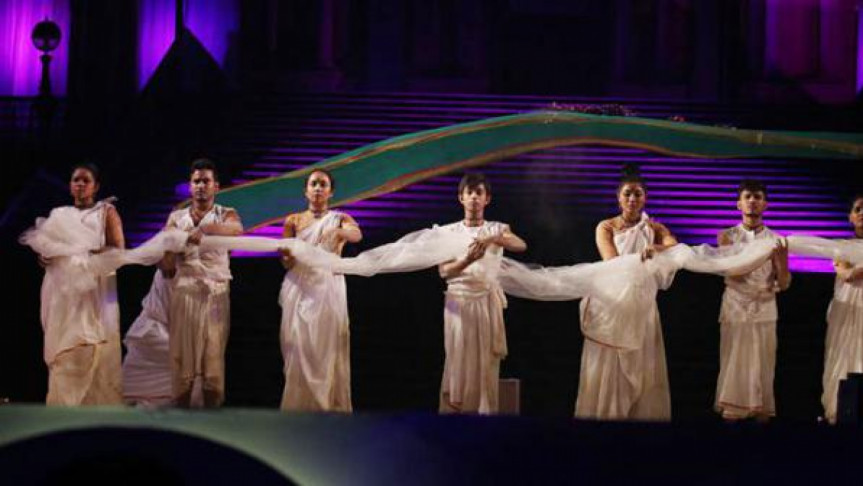‘Muslin Night’ sparks hopes for revival of lost glory

Dhaka: Although it is difficult to revive a yard of a fabric that weighs less than 10 grams, Muslin, especially the ‘Dhakai’ variety, was something that was reserved solely for the aristocrats.
Muslin faded away from public memory at the height of British colonial supremacy, but recent efforts by designers and researchers have ensured a revival of sorts, hence the organising of a cultural extravaganza, Muslin Night, as part of the ongoing Muslin Festival 2016.
Organised by Drik and Bangladesh National Museum in partnership with Aarong and supported by the Ministry of Cultural Affairs, the month-long festival attempts to showcase substantial excerpts of reviving Muslin production process and integrating it with contemporary clothing designs.
The venue, Ahsan Manzil, was illuminated in pink and was party to its own mini-revival of sorts, given how the last royal structure of Mughal Dhaka remained stigmatised due to its proximity to the now-toxic Buriganga River.
Muslin Night kicked off with a series of speeches by Rashed Khan Menon, minister for civil aviation and tourism, Sayeed Khokon, mayor of Dhaka South City Corporation, Faizul Latif Chowdhury, director general of Bangladesh National Museum, Gowher Rizvi, foreign affairs adviser to the Prime Minister and Saiful Islam, CEO of Drik.
They all appreciated the initiative and extended their support to the cause and hoped that Muslin can make a comeback as a trendy and popular designer choice once again.
This was followed by a laser-light visual presentation on the history of Muslin, which was succeeded by a dance-drama ‘Hawaye Indrojaal’, arranged by the legendary Lubna Marium and her dance group Shadhona.
They brought out a play against a historical setting, showing the rise and fall of Muslin, which was scripted by Saymon Zakaria and directed by Sabbir Ahmed Khan.
Aarong followed it with a fashion show, displaying current Jamdani styles and design, along with ‘future Muslin’, dresses made by 12 fashion designers from UK, India and Bangladesh.
As a follow-up to the cultural show, a day-long seminar is scheduled for the next day at Bangladesh National Museum, where a series of discussions and idea-sharing workshops will be held to focus on Muslin’s operational issues and the development of marketing plans for the product.

 NTV Online
NTV Online




